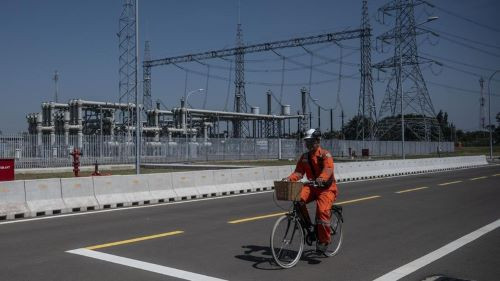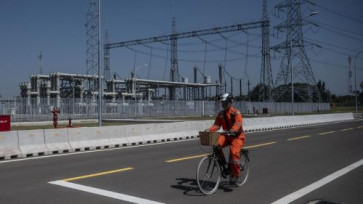Popular Reads
Top Results
Can't find what you're looking for?
View all search resultsPopular Reads
Top Results
Can't find what you're looking for?
View all search resultsTransforming Indonesia’s core values: Lessons from the gas pricing challenge
Domestic gas prices remain high due to the complexity of Indonesia’s energy market, a system trapped in feedback loops that policymakers continue to address with short-sighted measures.
Change text size
Gift Premium Articles
to Anyone
I
ndonesia’s manufacturing sector faces a significant issue: Gas prices that are three to four times higher than those of regional competitors like Thailand and Vietnam.
Industrial users in Java pay up to US$12.52 per million British thermal unit (MMBTU), while prices in neighboring countries hover around $3. This disparity is crippling Indonesian industries, despite the country’s natural gas abundance and surplus electricity.
Why does a nation with such huge energy potential struggle with high domestic gas prices? The answer lies in the complexity of Indonesia’s energy market, a system trapped in feedback loops that policymakers continue to address with short-sighted measures.
At the heart of Indonesia’s gas price dilemma is a national inclination toward short-term thinking. This mindset has shaped approaches to problems, leading to decisions that prioritize immediate relief over sustainable solutions. The preference for quick fixes often turns potential remedies into new complications, creating costly cycles that burden industries and obstruct long-term growth.
A clear example is the reliance on Floating Storage and Regasification Units (FSRUs). These units provide a temporary increase in domestic gas supply but come with high operational costs, keeping gas prices elevated.
Instead of addressing underlying issues like expanding pipeline capacity or revisiting export contracts, such measures only delay the problem. This approach reveals a broader cultural tendency to favor the short-term over the enduring.
This mindset, characterized by an aversion to long-term planning, is not merely abstract, as it directly influences how policies are crafted and decisions are made regarding our natural resources. The dynamics of Indonesia’s gas market, with its reinforcing and balancing loops, illustrate how these shared assumptions shape outcomes.



















